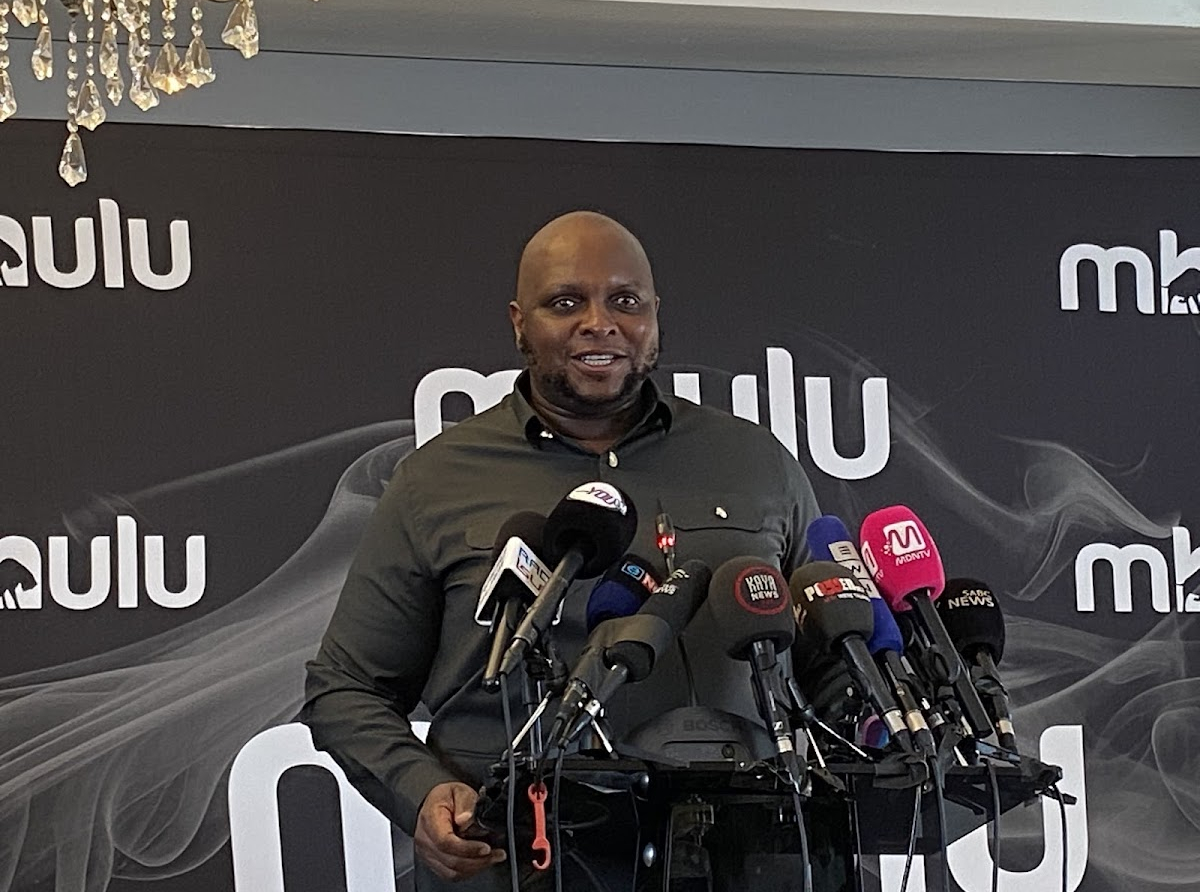Floyd Shivambu’s Next Move: Listening Tour or Breakaway Party?

By Selloane Khalane
“I have not resigned from uMkhonto weSizwe and I will never resign from uMkhonto
weSizwe,” declared former Secretary-General of the MK Party, Floyd Shivambu, during a
media briefing at Mhulu Hotel in Midrand on Thursday.
Drawing from the political playbook of MK leader Jacob Zuma, Shivambu asserted that
despite announcing a nationwide consultation process, he remains a committed member
of the MK party. The consultations, he said, will engage citizens, businesses, academics,
and religious organisations on whether South Africa needs a new political formation.
Quoting the MK party constitution, Shivambu explained: “The constitution of uMkhonto weSizwe
says that members are not allowed to participate in the activities and programs of political
parties whose aims and objectives are opposed to the objectives of uMkhonto weSizwe.”
He added pointedly, “If uMkhonto weSizwe believes that going to listen to the people violates
the constitution, it will tell me that.”
Shivambu’s remarks come amid growing tensions within the MK Party. In July 2024, the African
National Congress (ANC) expelled Jacob Zuma after he publicly endorsed the MK Party ahead
of the May 29 national elections. Despite leading MK, Zuma later wrote to the ANC requesting
reinstatement of his membership.
On 3 June, Shivambu was removed from his role as Secretary-General and told he would be
redeployed to Parliament. He claims the demotion was based on a fabricated intelligence report
accusing him of plotting to oust Zuma. Initially instructed not to disclose the reasons for his
removal, Shivambu said recent statements from other MK leaders had compelled him to speak
out.
Although party officials blamed his demotion on his controversial trip to Malawi to meet
self-proclaimed prophet and fugitive Shepherd Bushiri, Shivambu dismissed this as a
smokescreen. According to him, internal party battles and financial mismanagement were the
real issues.
“One of the reasons cited was that I wanted to use Parliament to take over the party,” Shivambu
said. “The president of uMkhonto weSizwe, whom I dearly respect, is surrounded by political
scoundrels who opportunistically exploit his kindness—and sometimes his gullibility, which
comes with age—using fake intelligence reports to mislead him. Their goal is to steal from the
MK Party, and they are doing so right now.”
He accused unnamed individuals of looting party funds, stating that at least R7 million is being
withdrawn monthly from MK coffers without accountability. “Anyone who raises concerns about
this theft is removed,” he said. “There’s no treasury general who resigned—they were removed.”
Shivambu announced the formation of a committee to guide consultations and assess whether
a new political party should be established. “We are not rushing. We are going to listen to the
people.”
His political trajectory has been anything but quiet. In August 2024, he resigned from the
Economic Freedom Fighters (EFF)—a party he co-founded in 2013 alongside Julius
Malema—to join MK as national organiser and Secretary-General.
While his split from Malema was highly publicised, Shivambu insists he has no regrets about
leaving the EFF. “I have tremendous respect for President Jacob Zuma. I’ve learned more about
politics in the past six months than I did in 10 years as the deputy president of the EFF,” he told
journalists.
Shivambu’s fall from grace within MK became evident when Zuma’s daughter, Duduzile Zuma,
publicly criticised his leadership on X (formerly Twitter). Responding to the criticism, Shivambu
quipped, “We will speak against people who take drugs and tweet at night.”
He rejected the notion of a political party being run as a personal or family enterprise. “A political
party is not a family project or a tool for self-enrichment,” he said. He also addressed claims that
he was difficult to work with, saying his refusal to attend private meetings was often
misinterpreted. “Comrades want private meetings so they can be protected when they do
wrong,” he said.
Responding to allegations that he had secured funding from Malawi to finance a new political
venture, Shivambu was unequivocal: “There is no funding from Malawi.”
Despite all the internal strife, Shivambu maintained his admiration for Zuma and criticised Judge
Raymond Zondo for the former president’s incarceration following the Zondo Commission’s
state capture inquiry.
As Floyd Shivambu embarks on what may be the early stages of a new political project, his path
reflects the turbulent and deeply personal nature of South African politics, one where loyalty,
ambition, and ideology often clash in the public arena.

